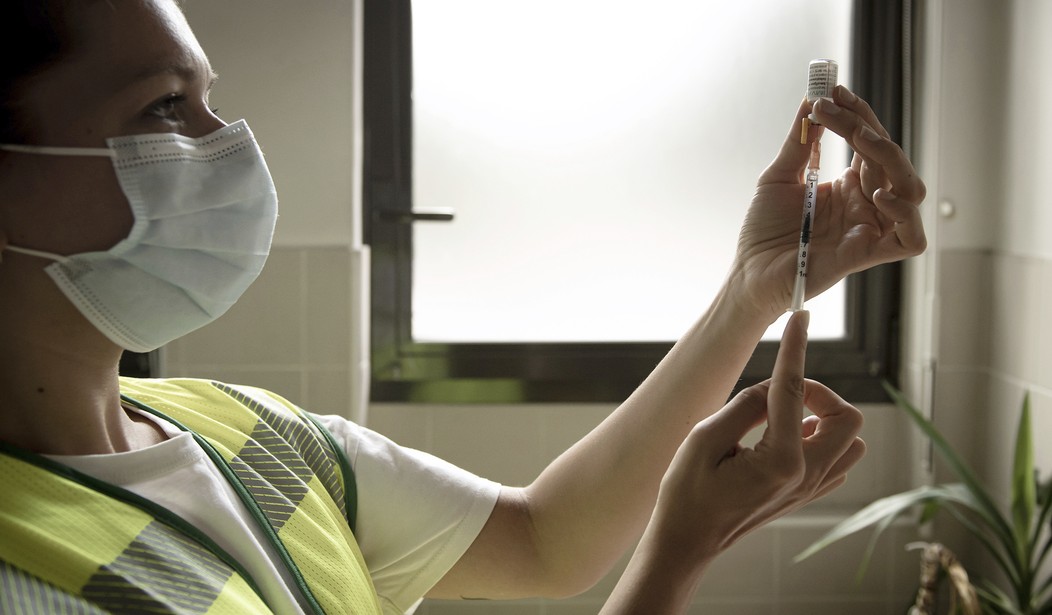After everything the United States — and the world — has been through in the last two years as a result of the COVID-19 pandemic, it's hard to believe anyone would think tinkering around with viruses is a good use of time and resources.
Apparently, the scientists at the National Institutes of Health do think such experiments are a worthwhile endeavor and, according to a new letter from House Republicans, they've been playing around with the genes of various monkeypox viruses — mixing somewhat deadly viruses with some that are much more lethal. What could go wrong?
In a letter from Reps. Cathy McMorris Rodgers (WA), Brett Guthrie (KY), and Morgan Griffith, the Republican lawmakers seek answers from NIH and its National Institute for Allergy and Infections Diseases (NIAID) regarding its "monkeypox virus enhancement" which has "reportedly made the diseases 1,000 percent more lethal in mice."
According the letter, the more lethal monkeypox virus "has about a 10 percent mortality rate in unvaccinated people" compared to the monkeypox virus that's been spreading in the U.S. that has a "mortality rate less than one percent."
As the Republicans explain, the project involves "transferring genes from 'clade 1' or Congo Basin clade monkeypox virus (a rare version of monkeypox virus that is 1,000 times more lethal in mice than the version currently circulating in humans) into 'clade 2' or West African clade monkeypox virus (the version currently circulating in humans)."
The letter adds that information regarding these "specific experiments became known in a September 2022 SCIENCE article on NIAID work on monkeypox," suggesting that, without the reporting that caught their attention, the research may have flown completely under the public's radar.
Recommended
As the lawmakers' letter continues, it appears as though the risk is not worth any potential benefit that could come from the experimenting with creating deadlier strains of already-bad viruses. What's more, there's a chance previous oversight of such projects may not have existed at the time this project was undertaken by NIH and NIAID:
The risk-benefit ratio indicates potentially serious risks without clear civilian practical applications. Based on available information, this experiment would seem to involve risks reasonably anticipated to create, transfer, or use potential pandemic pathogens (PPPs) resulting from the enhancement of a pathogen’s transmissibility or virulence in humans (enhanced PPPs). Under the circumstances, we are interested in learning whether this experiment was reviewed under the HHS P3CO (Potential Pandemic Pathogens) framework used to review risky research proposals. We recently received a letter from HHS implicitly confirming that the HHS P3CO review committee has been inactive since 2019, without any indication that the Biden administration is reactivating this committee. (See attachment). Nevertheless, it is important to know whether NIAID itself conducted any internal review on this issue.
The full letter to NIH is embedded below, including several specific questions from public health officials about their work with monkeypox. Among them, what were the proposals for this project? When did the experiments start, are they still ongoing, and if not when did they end? What sort of review did the research undergo by the National Institutes of Health? What risks are known regarding such research and enhancement of monkeypox? What benefits are expected to come from this project? Is the goal to find treatments or vaccines against other monkeypox viruses? Was the experiment reviewed under the HHS Potential Pandemic Pathogen framework? If not, why not?
Those all seem like fair questions, given the apparent risk involved in toying with deadly viruses. The GOP lawmakers gave NIH a deadline of November 14 for their responses.

























Join the conversation as a VIP Member